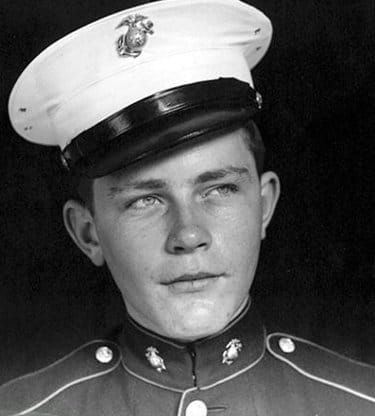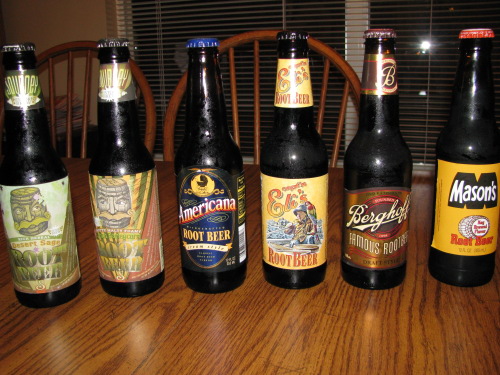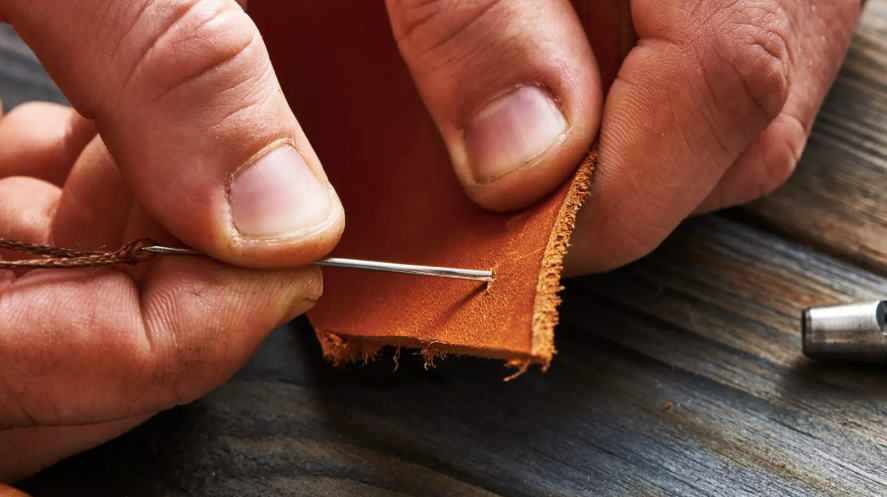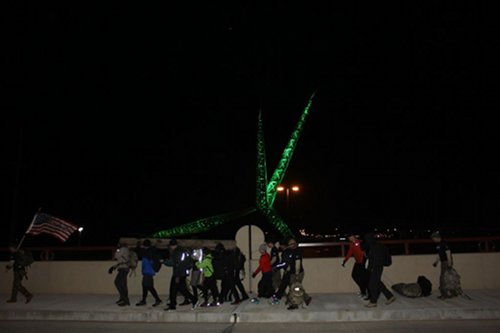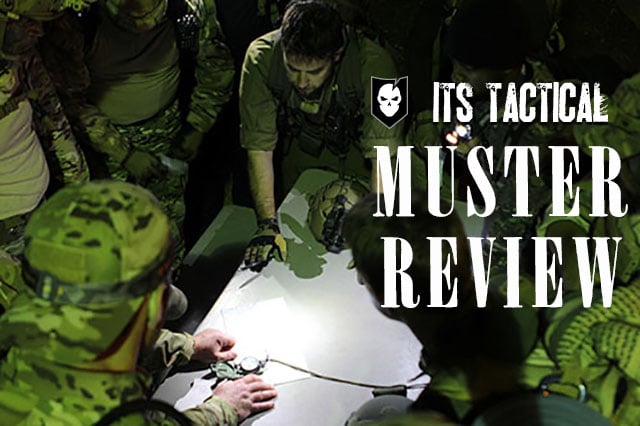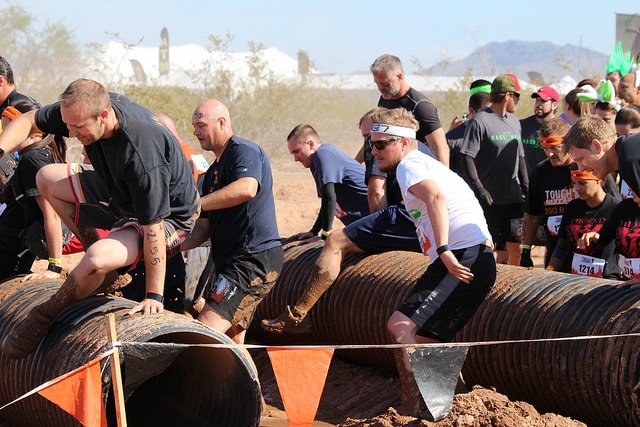
Editors note: What happens when a crusty Vermonter, who stays in shape by splitting wood and whose idea of fun is hanging out in a primitive shack in the woods, tries one of the most popular events in the exploding obstacle race movement? James “Uncle Buzz” Surwilo filed this report.
Tough Mudder calls itself “probably the toughest event on the planet.” But after participating in a Tough Mudder event myself, I would substitute “hardly” for the rather odd qualifier “probably.”
To the uninitiated, a Tough Mudder event – mind you, event, not competition – is a one-day obstacle course which is, in their words, “designed to test your all-around strength, stamina, teamwork, and mental grit.” Events are team-oriented, and held the world over; the Tough Mudder that I took part in was held right here in Vermont.
Tough Enough?
I was vaguely aware, before, of Tough Mudder, Spartan Races, and the spate of other “obstacle” races that seem to be growing in popularity these days, but I never considered joining in. That all changed at my extended family’s Easter celebration this year. As we gorged on artery-clogging Polish fare and tipped back a few beers, Cousin Andrew recounted his and Cousin Casey’s entering — and finishing — a Tough Mudder event the previous year. A number of eyebrows went up in the room, including mine, as Andrew is not, umm, exactly lean and mean, as I would have thought a Tough Mudder finisher ought to be. By and by, after another beer, and a plate of kielbasa and pirogi later, it comes out that 97-pound Casey dragged Andrew by the heels, sobbing and expended, over the last few miles of the course.
Andrew was very excited about entering a larger-than-two contingent in the New England Tough Mudder, and began to implore family members to join in. He was going around the room, seemingly asking anyone ambulatory to sign up. Except me. “Great Aunt Sophie, I’m sure walkers are allowed, are you game?” “Little Stanley, you’ll be out of diapers in a few months, I’ll sign you up.” That may be an exaggeration, but I was definitely harkened back to being the last kid picked for middle school gym class basketball, only worse, this time I wasn’t even picked.
So I stewed on this perceived slight for a few weeks as the far-flung Team Surwilo came together: Andrew and Casey from New Jersey, Cousin Allison from Connecticut, and my son Doug from Vermont. All 20- and 30-somethings. Should I assume that a fogy from the older generation of cousins simply wasn’t wanted to, literally, anchor the team? Did they think that I’d show up at Tough Mudder in my 70s tube socks, with ringer T- shirt tucked into high-waisted gym shorts? Should I just grovel and ask to join the team? I decided to utilize Doug as an intermediary, and asked him to float the hint that his creaky ol’ man would be interested in joining Team Surwilo, if the others would have him. Well, the word came back that I was welcome to participate, that any initial exclusion was merely an oversight. Yeah, sure.
Signing Up . . . To Be Nickeled and Dimed
Because I wasn’t at all sure that I was going to take part, I hadn’t learned of the whole Tough Mudder culture. I didn’t understand the ethos, and didn’t realize what I was getting into. That all changed when I went on the website to register for the event. I fully admit to being naïve and quixotic – and if I was ever to forget, my kids would gladly remind me – but I was a little taken aback by the, um, swaggering bravado of the Tough Mudder message, with an abundance of black and red, and fire, and skulls and crossbones, and rugged, utilitarian fonts. If I don’t finish, do I have to walk the plank at sword point? But I guess when you are an entity enticing a demographic to run a seemingly grueling obstacle course, this is the correct marketing technique. And throw in some references to beer, tattoos, and rock ‘n’ roll, and a pretty wide net into the American public is cast.
Well, heck, I could appreciate this promotional tack. A Tough Mudder event should be billed as a challenge, and fun, and a chance to build esprit de corps, where sissies need not bother, and if you sign up, you’d better start seriously training or your lifeless body will be found hung up on barbed wire, a scant half-mile into the course. What I couldn’t appreciate, though, was the steep $150 entrance fee. True, had our team gotten its act together sooner, or should I say had I been invited to join the team sooner, the price would have been slightly less, but the peculiar escalating fee structure was the first clue as to the profit-focused nature of Tough Mudder. The second was the mandatory $15 insurance fee tacked onto the cost of registration. Call me nitpicky, but why separate out the insurance fee? If you are going to hose me, hose me for $165, lump sum, don’t nickel and dime me.
But Tough Mudder relentlessly trumpets its “proud support” of the Wounded Warrior Project, a non-profit organization providing assistance programs and services for injured service members. A terrific idea, and if a goodly chunk of my $165 registration fee went to help this deserving organization, I’d be all for it. The truth of it is, when you drill down through the propaganda, the Tough Mudder participant, if he or she raises an additional $150 for the Wounded Warrior Project, will – get this – be bestowed a $25 refund by the Tough Mudder organization on their immoderate registration fee. In other words, none of the well over $1,000,000 collected in registration fees for this Tough Mudder New England alone went towards helping the injured service members. All of the money donated to WWP comes, as a supplement, from the kindness and pockets of participants, not from the Tough Mudder organization.
Further, I was dismayed to discover that Tough Mudder has the audacity to attempt to charge spectators $40 to watch an amorphous horde of weekend warriors tramp up and down some ski slopes. “Bring the spouse, bring the kiddies, bring your work buddies, but just make sure that they come with a pocket full of cash.” What hubris! You can watch the Boston or New York Marathons – which include world class athletes — for free. In fact, you can view any road race in the country – many of which actually give all their net proceeds to charity – for free. $40 a head for the privilege of watching a Tough Mudder? You’ve got to be kidding. Well, if you don’t want to be clipped for spectating, you could always volunteer at the event, which the website implored. Hmm, Tough Mudder is raking in some very serious money, and yet is asking for unpaid assistants to perform menial labor in order to pad the bottom line. Am I missing something here?
But wait, the attempted shakedown isn’t over yet, as I read on. “So you, Mr. or Ms. Participant, after driving to Mount Snow, want to park your car for the event? Well, that will cost you another ten spot.” Never mind that it’s a ski area accustomed to big crowds and with acres of parking, it seems as if Tough Mudder can find a way to turn a buck, they will.
And last, but not least in annoyance, was the $3 charge if you wanted to check your bag of clean, dry clothes for changing into after the event. In full disclosure, out of the goodness of their collective hearts, Tough Mudder states that it will give half of the bag check proceeds to the Wounded Warrior Project. That’s right, a whole $1.50 donated for each bag checked. Kind of tugs at the heartstrings, doesn’t it?
Preparing for the Big Event
The Tough Mudder website presents much in the way of training recommendations to prepare for the big day; instructions geared specifically towards one’s fitness level at the time of Tough Mudder commitment, from 97-pound weakling to Olympic decathlon champion. But like most advice that I’m offered – especially if it differs from my preconceived notions – I ignored it. Chest presses, curls, burpees, Bulgarian split squats, mountain climbers…yeah, yeah, and yeah. Besides, I’m 55 years old with bad feet and a build like Olive Oyl, and I don’t have multiple hours spent each day idling on the couch that I could turn into a one-month transformational fitness regime. I’d have to take on Tough Mudder physically as is, and hope for the best. For mental preparation, I repeated to myself so often that it became a mantra: “If Andrew can finish, so can I.” And I was heartened to know that my son’s training routine consisted of occasionally tooling up and down a flat, waterfront bike path at a pace calculated more to admire the female scenery than to build endurance. If I was going to stagger off course and collapse in the weeds from exhaustion, I’d have good company.
So the big Tough Mudder weekend arrived. As luck would have it, Allison’s dad, Cousin Eddie, has a funky old farmhouse in Wardsboro, about 10 miles from the Tough Mudder venue. The idea was for participants and our entourage to congregate there on Friday, spend the night, and be ready to go for our 8 a.m. Saturday start time. We all were disciplined on Friday night, ordering veggies on the pizza, keeping alcohol consumption to reasonable quantities, and getting to bed at least before midnight.
The Morning of the . . . Race?
Saturday morning dawned sunny and cool, with a forecast for continued sunshine all day and temperatures in the low 70s. Perfect for a masochistic outdoor adventure. Andrew and Casey, our Tough Mudder veterans, offered us newbies helpful last minute information, such as that we should have started hydrating the week before, that not all of the tangle of dangling electrical wires that we’ll run through are actually energized, and relatively few people have died on the course. Great! They also admonished me for my pre-event breakfast choice of a couple of Pop Tarts and three cups of coffee, themselves preferring instead tasteless energy bars, too-healthy bananas, and these advanced science, performance-enhancing cubes which I think are just reshaped gummy bears.
The five of us comprising Team Surwilo donned our matching shirts and piled into Cousin Eddie’s truck for the chauffeured ride to Mount Snow and the Tough Mudder starting line. Since the organizers, in my estimation, anyway, want to extract the maximum amount of money from each registrant, including parking fees, vehicles that are simply dropping off passengers are stopped about a half-mile from the check-in point. “Are you sure that you don’t want to pay to park, it’s pretty far to walk…” We walked, but the carload of family members that came to watch shelled out the $10. Dang, that pained me!
The Mount Snow base area was alive with the energy of thousands of amped-up Tough Mudder entrants, and the adrenaline was even seeping through my curmudgeonly veins. Once through the check-in line, Tough Mudder requests that a teammate write your entry number in indelible ink across your forehead, not for post-mortem documentation, but for recognition in photos that Tough Mudder will hawk to you afterwards. This isn’t made explicit, so the forehead display takes on the role of badge of honor, elevating the participants from the rabble of spectators and hangers on. I declined the ink. Firstly, I had no desire to obtain a photo of myself and, secondly, the numbers creeped me out, leaving an impression that was somewhere between a price tag and a convict’s identification.
A lot of teams, like Team Surwilo, came outfitted with custom shirts, and the shirts ran the gamut of styles and colors. As might be imagined, the more buff the body, the more prominent the tattoos, and the more serious the team, the tighter and skimpier the attire. Team Surwilo, on the other hand, opted for belly-flattering, unisex black T-shirts, sized spaciously, although we did include a kind of badass skull and crossbones logo on the breast. No doubt this seriously intimidated our competitors as we swaggered to the starting line.
Tough Mudder staged groups of several hundred, I’d guess, for starting at 20-minute staggered increments. Those teams with an identical starting time would move uphill and away from the frenzy of the base area, wait at the beginning of the course in the shade of the first obstacle: a solid, wooden, eight-foot wall. On the other side of the wall an animated and amplified Tough Mudder staffer gave the previous group instructions and pointers, fed them Tough Mudder propaganda, had the group sing the National Anthem, recite some cornball pledges, and chant banal inspirational slogans. We were only separated by a 50-foot-wide wooden wall, so could hear everything. The histrionics were a bit over the top. What, was I storming the beaches of Normandy, winning one for the Gipper, or just paying dearly for the privilege of running up and down some ski slopes with 8,000 other bored Americans?
So the horn or whistle or whatever the signal was went off, and Team Surwilo, gathered close to the wall, collectively scaled the formidable barrier, taking turns boosting each other over, or sacrificing our bodies to cushion a teammate’s free fall on the other side. Even though no one is being timed, with hundreds of adrenaline-fueled entrants waiting their turn, scrambling over the wall becomes a frenzy, with far too many bodies in far too small a space. Mount Snow is falling to the Commies, and on the other side of the barricade is the last helicopter flying out, and I’m getting on! Well, I scrambled up and over the wall without dangling helplessly from the top with my shorts stuck on a loose board or anything, so, so far so good.
Having conquered our first obstacle, we all were supposed to collectively stop, congregate, and listen to the Tough Mudder shill run through his canned spiel on patriotism, safety, indemnification, a pitch for licensed Tough Mudder apparel, and practice our secret handshake…as if we hadn’t just been subjected to this hooey, verbatim, five minutes and 50’ removed. Andrew, my man, suggested that we just keep going and join the stragglers of the previous group as they receded down the ski trail. Bringing up the rear would be a position we’d know well.
So off Team Surwilo went on our big adventure, ready for whatever nature or the Tough Mudder organizers could throw at us. This bowie-knife-between-the-teeth, bandoliers-crisscrossed-over-our-bare-chests attitude lasted, oh, about five minutes until we concurrently lost our first wind, and became enmeshed in the sea of humanity that, I’d come to find out, was intrinsic to Tough Mudder New England. The large but individual groups that started the event at predetermined increments quickly blended together, the faster teams moving up through the pack, the slower teams, like us, falling behind. But, in essence, the Tough Mudder became a 12-mile-long undulating snake of people.
Anyone who has entered a running race or any long distance endurance competition knows of the pre-race jitters and the pent up nervous energy to burn. You just want to GO. But once out on the course, after a few hundred strides, or strokes, or revolutions, you find your pace, remember that you’ve put one foot in front of the other, or dipped oars in the water, or pedaled a bike countless times. When that happens, when the initial thrill and spectacle of the start is over, the intensity wanes, and the surroundings become noticeably quieter. It can feel a little anticlimactic, and the reality of the arduous trek ahead begins to sink in. Tough Mudder was no different. Within five minutes of the start, I was run-walking elbow-to-elbow with hundreds of other of my panting brethren, trying to convince myself that this was fun, and hoping I could last to the finish line.
The obstacles were, admittedly, kind of cool, especially the first baptism of mud. One minute we were all virginally clean, the next minute, dirty brown from head to toe. Like a car wash running backward. For most of the obstacles, neither athleticism, grace, experience, nor cunning was advantageous. They were, in fact, put there to get you muddy, or muddy again, or muddy once again. Doug and I began to call the obstacles “diversions,” as they became welcome respites from otherwise artless tromping up and down ski trails. A few of the obstacles took upper body strength, such as crossing over a water body on monkey bars, or hauling yourself over vertical walls, and a few involved electric shocks or ice cubed water, which took more nerve than muscle, but for the most part, they were about fording mud in every way, shape, and form.
From the initial wall climb, the freneticism of the participants in overcoming the obstacles never abated. Everyone would be plodding along at whatever speed was comfortable for the individual or team, until an obstacle approached and then you’d think that eternal salvation awaited on the other side – but only for one more person. Gang way! If I was crawling through a half water-filled culvert I could be assured that my head would be inches from the person’s flaying feet ahead of me, just as I knew that there was someone right behind, implicitly pushing me along. Jeez, back off, I’ve just about got my head between this woman’s knees! Everyone got caught up in the silly “need for speed,” irrespective of time being irrelevant. You just didn’t want to be like the grandpa doing 50 in the passing lane, holding up a line of cars.
The thing of it was, if you didn’t want to attempt an obstacle, you simply went around it and continued on your merry way. No note from a doctor needed, no event marshal there to tongue lash, no sitting for 15 minutes in the penalty box, no writing “I am a wussy” 100 times on a chalkboard. No consequences. The fact that a participant didn’t even have to try to overcome an obstacle seemed incongruous with the bravado spirit of Tough Mudder.
At any given time, I had no idea where on the ski area I was; whether the Tough Mudder course was a series of loop-de-loops, or a sine wave, or as random as a three-year-old’s scribble. I was a red blood cell in an artery, just going with the flow. So it would come as a complete and amusing surprise on several occasions to come within earshot of the starting line and hear the Tough Mudder pitchman egging on the next-to-go group. Assuming it was the same guy, give him credit, like a department store Santa, for he could feign excitement dozens of times per day. Even by the early afternoon, from what I could tell, the exhortation was as irritating and facile as it was at 8 a.m.
If it hasn’t been made clear, Team Surwilo set a, let’s say, leisurely, pace. We were certainly overtaken by more people than we passed. The faster members of our team would forge ahead, and wait for the others at the top of some hill or at the next obstacle, then run down the hill or tackle the obstacle, and start the process over. This strategy worked well, and we kept together and shared the camaraderie of the experience. Only near the end, when Allison’s asthma began to take its toll on her stamina did we split into two groups. Doug, Casey, and Andrew forged ahead so as not to get cold waiting and risk muscle cramps, as even at 70o, being wet in a breeze can be chilly.
The final Tough Mudder obstacle was placed where all the previous finishers (of which at that point there were plenty) and spectators could watch the fun. It was a sprint through a channel of – guess? – calf deep mud, with an occasional deeper, hidden hole, and scattered hay bales to navigate around. Probably five persons wide and 40 feet long. Above the channel hundreds of wires dangled, placed densely and long enough to be unavoidable. Based on my “get me out of here” semblance of a sprint through, yes, many wires weren’t electrified, but I wasn’t going to go back around and test that hypothesis. The live wires smarted, and beer waited.
Reviewing the Experience
So Allison and I finished, got our free beer (only one, lest Tough Mudder’s profit margin shrinks by 50 cents), each collected our T-shirt and headband (which I soon and not regrettably lost), and were reunited with the earlier Team Surwilo finishers and our families. Five of us started, five of us finished without serious injuries or medical issues. Our performance then, on that basis, was equal to any other team, and better than some.
I’m not sure what I expected from Tough Mudder; no experience is what you think it’s going to be: better, or worse, or simply different. I was surprised and disappointed by the mercenary nature of the event. I ignorantly thought otherwise, but Tough Mudder is a for-profit business and, like any business, seeks to maximize revenues and minimize expenses. They want, for instance, as many entrants as possible, so the course can’t be too tough or competitive, or no one but the hardcores will enter again. And the numerous fees and relentless sales tactics turned me off. I’m just not someone who’s particularly motivated by money, and this apparent focus of the organizers tainted the experience.
I don’t doubt that we were among the slower teams on the course, so I can’t say I was disappointed to not see how we fared against others. But even during the event itself, knowing that we would finish but that it didn’t matter when, an impression of pointlessness to the endeavor began to develop. Does it matter if I skip this obstacle? Nope. Does it matter if I sit in the sun on top of the ski lift enjoying the view for a few minutes? Nope. Knowing that something is regulated and timed lends an event some extra excitement, and thus the motivation to really exert yourself. The Tough Mudder claims to eschew timing in favor of an emphasis on camaraderie, and that simply finishing is challenge enough. But jettisoning timing chips also saves money, and as aforementioned, making it to the end of the course is really not all that difficult. Absent the thrill of competition, this kind of event loses much of its draw, at least to me.
Was Tough Mudder physically demanding? I felt surprisingly fresh at the finish, and never felt otherwise later that night or the next day. Honestly, I’ve been more spent after a brisk day hike up and down one of Vermont’s highest mountains, but undoubtedly had I pushed myself I would be telling a different story. Twelve miles of steep ups and downs at speed is demanding, and I tip my hat to those participants who kept running all the way from beginning to end.
Was Tough Mudder fun? Worthwhile? The best part about the Tough Mudder was . . . everything else about the weekend. Our extended family came together from hundreds of miles away, and we spent quality time together as we normally never do. These are people that I grew up with, and a younger generation, and now even a third generation. From sharing meals, telling stories around the campfire, and, yes, romping through mud, I got a sense for the Surwilos that I see, all too briefly, once a year at best. And I’ll treasure that my son Doug, who is out forging his own life, was my Tough Mudder teammate, and we ran miles side by side. Who knows when that opportunity will come again?
So while I’m not the target demographic of these kinds of events, I can understand their appeal. If your aim is to spend a Saturday with your friends or family, doing something fun and out-of-the-ordinary outside, rather than engaging in a true test of your strength, stamina, and mental grit, you’ll likely have a good time. It’s certainly better than spending your Saturday on the couch, watching other men perform athletic feats on television.
Would I personally participate in Tough Mudder again? I don’t think so; done that and the character of the event goes too much against my nature. Would I go to watch if Team Surwilo enters again? Maybe, but I sure ain’t going to pay!


